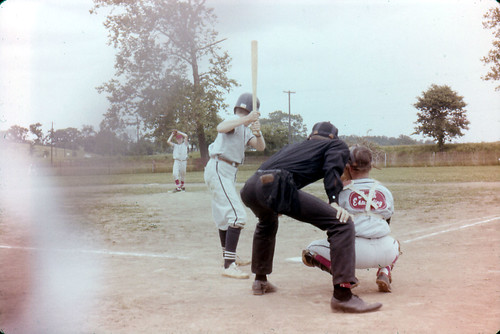So there we were. Full count, bases loaded, two out. Championship game. A score of 1 – 0. The whole season narrowing down to a single pitch.
Cue the slow-motion. Cue the Hollywood score: soaring strings, a drumbeat to match the rhythm of our hearts. We’ve seen this moment before. What we’ve not seen is the twist in Tom Perrotta’s short story “The Smile on Happy Chang’s Face.” The pay-off pitch strikes the catcher’s mitt, and our narrator, the volunteer umpire, refuses to make the crucial call.
But we are Americans, you say. We are all about winning and losing. We do not take kindly to hung juries. Someone, even the Little Leaguers of Perrotta’s story, must hoist the trophy. That’s what trophies are for. And yet. The umpire drops his mask, lets his chest protector slip to the ground. Through a chorus of angry boos, the umpire walks away, climbs a fence, and disappears into the dusk.
Yes, I love this Cracker Jack of a story, originally published in Post Road and included in Best American Short Stories 2005. Sure, it had a head-start toward being one of my favorites: it’s about baseball. But, of course, as with all baseball stories, it is mainly about loss. For every trophy hoisted, there is a row of sunken heads in the opposite dugout trying to spit out the taste of having come so close, each kid mentally replaying the game and, this time, not striking out.
This is the feeling that Perrotta nails, this frustrating inability to check our swings, to avoid the bad hop that catches us right in the nuts. His umpire (our umpire) is not a winner. Nor is he, even, a loveable loser. (Perrotta removes that distinction the instant he allows his narrator to break the nose of his effeminate son.) He is, simply, “a man who had the courage to admit that he’d failed.” And for this, I can’t help but feel that he speaks for me, a shortstop who never once made it to the championship game. Perhaps he speaks for all of us. My own shape-shifting heart breaks each time I read one of our narrator’s concluding lines: “What’s in your heart sometimes remains hidden, even when you most desperately want it to be revealed.” So what about that crucial pitch? Was it a strike? A ball? Does it matter? If the weight of the call becomes too much to carry, it’s nice to imagine what it would be like to drop the mask and slowly walk away.
Perrotta’s story was the featured work in Boston’s One City One Story project in 2010. Check it out in PDF form.






